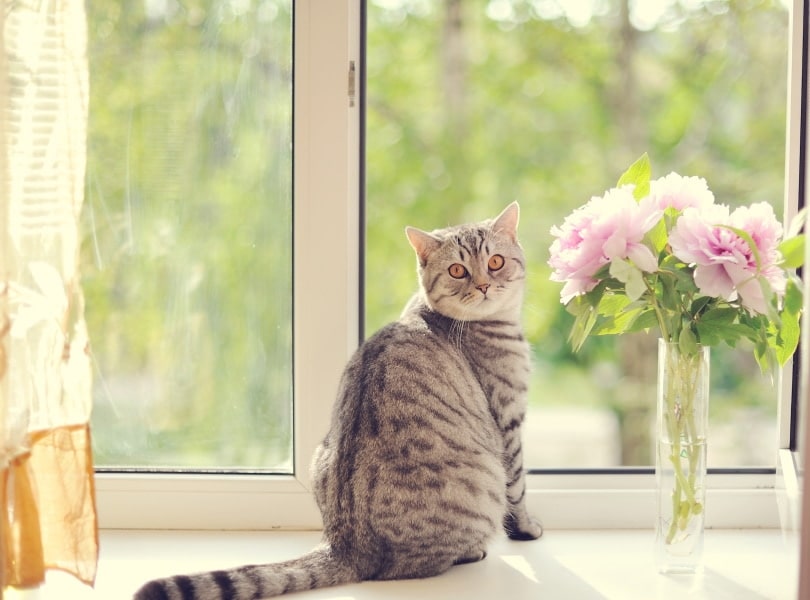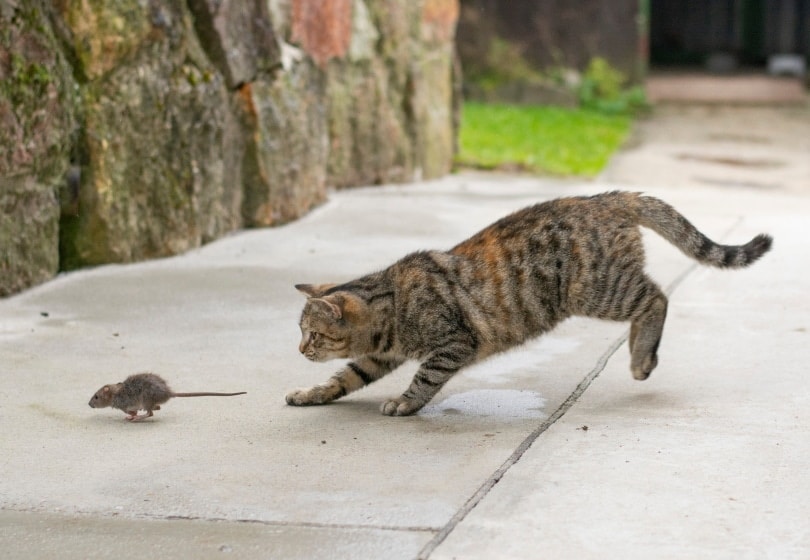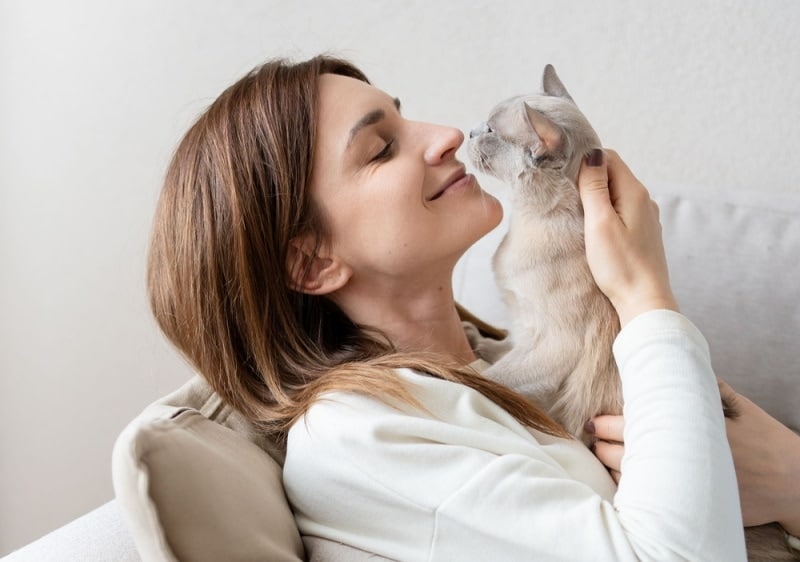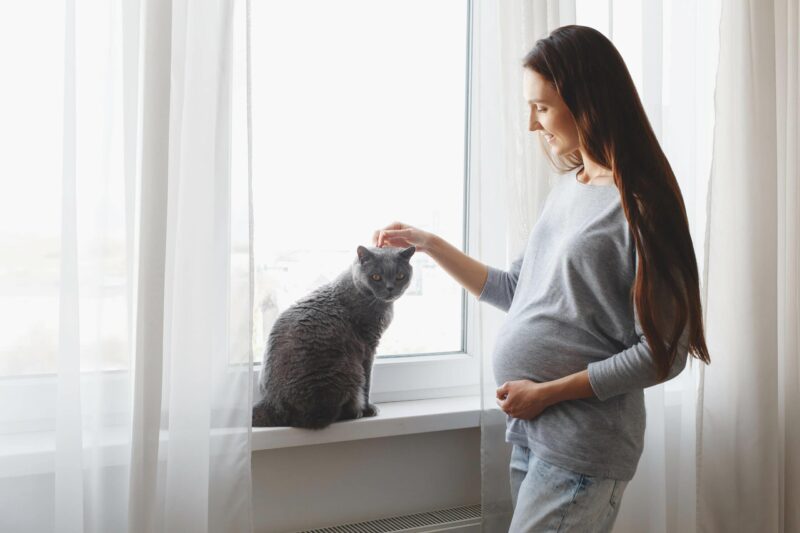If you’re considering getting a cat while pregnant, the CDC recommends you wait until after your pregnancy. However, if you already have a cat, there are some things you can do to safely care for them.
But what makes it potentially dangerous to care for a cat while pregnant in the first place, and what can you do to keep you and your unborn child safe? Usually, you don’t need to take too many extra precautions, but keep reading so you have all the necessary information to make an informed decision.
Indoor vs. Outdoor Cats
One of the most important things to consider when determining if it’s safe to have a cat while pregnant is whether it’s an indoor cat or an outdoor cat. Outdoor cats encounter all sorts of things in their environment, and then they track them back into their home.
The most common and dangerous thing for pregnant people is toxoplasmosis, a parasitic infection that is extremely common. It spreads through cat feces, and most adults display no symptoms, but it can be dangerous for those who are pregnant.
Meanwhile, it’s far less likely for indoor cats to carry toxoplasmosis and other potentially dangerous diseases, making it safer to have an indoor cat compared to an outdoor cat.

Toxoplasmosis Basics & What You Need to Know
The most likely condition you need to worry about when caring for a cat while pregnant is toxoplasmosis. Toxoplasmosis is a common parasitic infection that many cats carry, especially if they’re outdoor cats. Outdoor cats can get this while hunting or eating things they shouldn’t in the wild, and it likely won’t cause any negative signs for them unless they are immunocompromised.
The disease can spread from your cat to you through their feces. Between 1 and 5 days after they use the litter box the parasite becomes infectious and can spread to you when cleaning the litter box.
Typically, toxoplasmosis doesn’t have any symptoms or noticeable side effects for most adults, but it can lead to birth defects, miscarriage, or stillbirth if a mother becomes infected while pregnant. However, if a mother already had toxoplasmosis when they became pregnant, their immunity extends to the child, meaning you only have to worry about the time while you’re pregnant.

Precautions to Take With Cats While Pregnant
If you have an indoor-only cat that only eats cat food, the risk of contracting toxoplasmosis is very low. However, while this helps protect you quite a bit, keeping your cat indoors is not the only thing you should consider when caring for a cat while pregnant.
Other things you can do to lower your risk of developing toxoplasmosis include:
- Cleaning the litter box daily
- Only feed your cat commercial dry or canned food
- Cover outdoor sandboxes
- Wear gloves when dealing with soil or sand
- Avoid stray cats and kittens
- Do not get a cat while pregnant
Even while following all these precautions, it’s best to avoid cleaning the litter box entirely while pregnant. It’s better to get another family member to do this for you, as it all but eliminates the risk of developing toxoplasmosis.
Frequent Asked Questions
Can I Kiss My Cat While Pregnant?
You should avoid kissing your cat on their lips while pregnant. Instead, a kiss on the top of the head will suffice. It’s always better to be safe rather than sorry. Cats have as much bacteria in their mouths as humans, so avoiding kissing them means it’s less likely they’ll spread diseases to you.

Can I Sleep With My Cat While Pregnant?
While you can kiss your cat in some spots while you’re pregnant, you should do your best to keep your cat off your bed. Your cat hanging out on your bed increases the likelihood of a bacterial or parasitic infection, like respiratory diseases.
Final Thoughts
Now that you know a little more about cats and kittens and how they can affect your health while you’re pregnant, it’s up to you to make an informed and smart decision to protect yourself and your baby. Cats make great pets, and as long as you’re smart about it, you can keep and care for them while pregnant.
Featured Image Credit: Nesolenaya Alexandra, Shutterstock











